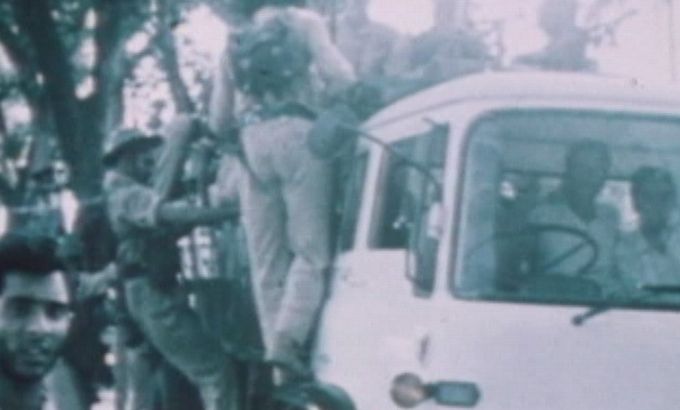Bangladesh war crimes verdict expected
Tribunal due to hand down its fourth judgement for crimes allegedly committed during country’s war of independence.

A war crimes tribunal in Bangladesh is expected to hand down its fourth judgement on a senior member of Jamaat-e-Islami, country’s largest Islamic party, raising fears of a fresh round of clashes between members of his party and security forces.
Muhammad Kamaruzzaman, the assistant secretary-general of the Jamaat, is among 11 men accused of war crimes during Bangladesh’s 1971 fight for independence from Pakistan.
The government says three million people died during the conflict, but that number is disputed by other groups.
Syed Haider Ali, the lead government prosecutor, said he expected the court would sentence Kamaruzzaman to death.
“On the basis of our arguments we are hopeful of getting the highest punishment,” Ali told reporters.
Some factions in Bangladesh opposed the break with Pakistan, including Jamaat. Its leaders have denied involvement in abuses.
Protests over the war crimes trials are one of the main challenges facing the government of Prime Minister Sheikh Hasina, who opened an inquiry in 2010 into abuses committed during the country’s liberation war.
The tribunals have angered Islamists who say they are a politically-motivated attempt to persecute the leadership of Jamaat, a key part of an opposition coalition.
Violent protests
Kamaruzzaman was arrested in a separate criminal case in July, 2010, and was charged with war crimes the following month. He has pleaded not guilty through his lawyers.
Dozens of people have been killed in clashes between security forces and protesters opposed to the tribunal since the first guilty verdict was delivered in January.
In tribunal’s third conviction in March, senior Jamaat leader Delwar Hossain Sayedee, 73, was sentenced to death for abuses including murder and rape during the war.
The tribunal has been criticised by rights groups for failing to adhere to international standards. Human Rights Watch said lawyers, witnesses and investigators reported they had been threatened.
In a separate challenge to Hasina’s government, tens of thousands of members of another Islamist group Hifajat-e-Islam movement massed in the capital Dhaka this week to demand the imposition of a new blasphemy law.
At least 27 people were killed in some of the worst violence seen in the city in decades when police clashed with supporters of Hifazat in the capital on Sunday night and Monday.